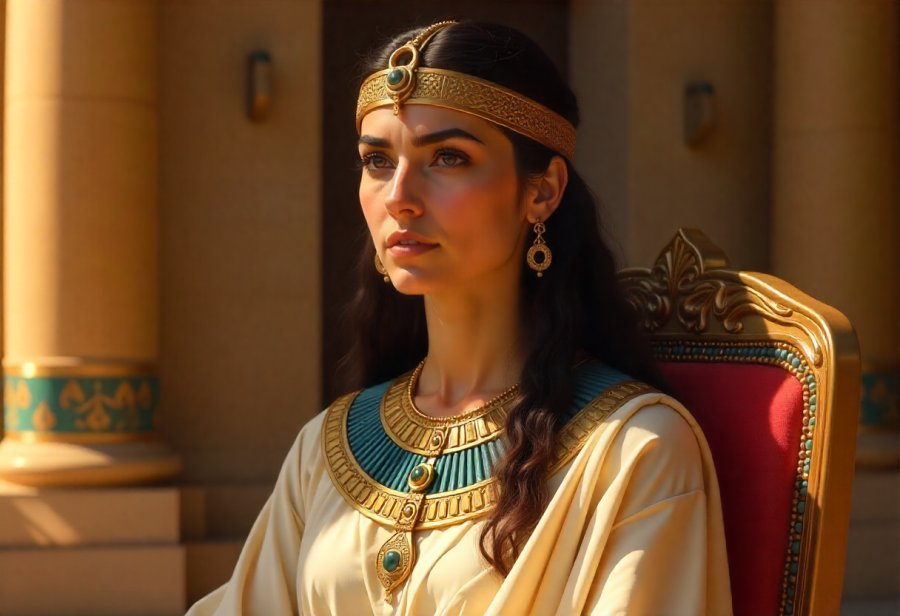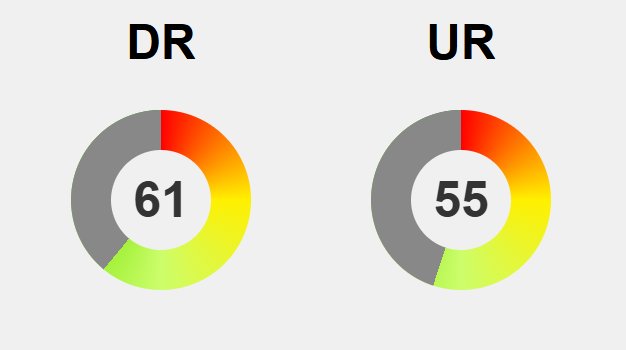Astrology claims to unveil your true nature through celestial patterns, suggesting that the positions of planets and stars at your birth shape who you are and your life’s journey. But can these cosmic influences truly hold sway over our personalities and destinies? From ancient civilizations to modern digital platforms, astrology has evolved yet remains steeped in mystery and fascination. While skeptics dismiss it as lacking scientific basis, supporters find profound meaning and guidance within its symbolic language. This preview explores whether astrology is merely a cultural artifact or a genuine window into self-awareness, highlighting its enduring appeal amid technological advances and critical debates. Are the stars shining a genuine light on our lives, or are they just mirrors reflecting our desire for connection and purpose? Delve into the principles that claim to reveal your essence and decide for yourself whether the cosmos holds the key to your true self.
Unveiling the Mysteries: How Celestial Patterns Shape Our Lives
Astrology is an ancient practice that suggests a deep connection between the positions of celestial bodies—like planets, stars, and the moon—and human life. Its core idea is that these cosmic patterns can influence who we are, how we behave, and even the choices we make. When someone is born, the sky at that exact moment creates a map, often called a natal chart, which many believe reveals insights about their personality and life path. This idea has persisted across cultures and centuries because it offers a way to find meaning beyond what science can easily explain.
The roots of astrology go back thousands of years, beginning with early civilizations such as the Babylonians and Egyptians. These cultures observed the night sky carefully, noticing patterns in planetary movements and linking them to earthly events. They believed that celestial events could foretell seasons, natural phenomena, and even human affairs. Over time, these observations were formalized into systems that divided the sky into sections, like the zodiac, and assigned specific meanings to the planets’ positions within them.
At its core, astrology claims that the moment you are born, the positions of the planets and stars influence your personality traits, tendencies, and potential life experiences. The zodiac signs—like Aries, Cancer, or Leo—are just the beginning. More detailed charts incorporate the moon, planets, and twelve houses, creating a complex map that many interpret as a blueprint of individual destiny. Supporters believe that planetary transits—ongoing movements—can forecast future events, helping people navigate life’s ups and downs with a sense of cosmic guidance.
Despite its ancient origins, astrology continues to thrive today, adapting with modern technology. Many people check daily horoscopes or get detailed birth chart readings online or through apps. These tools make it easy for anyone to explore their celestial influences without consulting an astrologer directly. While skeptics argue that astrology lacks scientific backing, supporters see it as a symbolic language that offers personal insights and a sense of connection to the universe.
People turn to astrology for many reasons—seeking reassurance, understanding themselves better, or finding guidance in uncertain times. Its core claim—that celestial patterns influence personality and destiny—resonates because it taps into a universal desire for order and meaning. Whether viewed as a spiritual tradition, psychological tool, or cultural phenomenon, astrology remains a fascinating way for many to explore their place in the cosmos.
Tracing the Stars: The Ancient Roots and Evolution of Astrology
Astrology’s history stretches back thousands of years, making it one of the oldest systems humans have used to make sense of the universe. Its earliest roots are found in ancient Mesopotamian civilizations, where priests and astronomers began observing the night sky not just out of curiosity but to find meaning in celestial patterns. They noticed that planetary movements seemed to coincide with significant events on Earth, from changing seasons to political upheavals. These early insights laid the groundwork for linking the heavens to earthly affairs in a systematic way.
Around 2000 BCE, the Babylonians refined these observations by developing the first zodiac signs and horoscopes. They divided the sky into sections, each associated with a constellation, and tracked planetary movements relative to these regions. Their zodiac system became a practical tool for predicting seasons, guiding agriculture, and interpreting divine messages. This framework spread into Egypt, Greece, and India, adapting to different cultural contexts and evolving into diverse astrological traditions.
In Greece, astrology began to connect celestial movements directly with personality traits and fate, laying the foundation for horoscopic astrology. Meanwhile, in India, Vedic astrology developed a sophisticated system based on lunar cycles and planetary positions, still widely used today. During the Hellenistic period, Greek and Egyptian practices merged, emphasizing individual horoscopes—charts for specific moments—shifting astrology’s focus toward self-awareness and personal destiny rather than just natural phenomena.
During the Middle Ages and Renaissance, astrology experienced a revival in Europe. It was regarded as a serious science, intertwined with astronomy, medicine, and philosophy. Prominent thinkers like Johannes Kepler studied planetary influences more rigorously, even as they maintained that astrology held symbolic rather than scientific truth. Throughout these centuries, astrology influenced decisions on health, politics, and personal matters, reflecting its deep integration into daily life.
However, as scientific inquiry advanced in the 17th and 18th centuries, astrology faced mounting skepticism. The rise of empirical astronomy and the scientific method challenged its claims, relegating it to superstition or cultural tradition in many circles. Despite this, astrology persisted in popular culture, evolving into a spiritual or psychological tool rather than a science. Today, it continues to adapt, blending ancient symbolism with modern interests and technology.
The resilience of astrology across millennia highlights its enduring appeal. Its history reflects a human desire to find order, meaning, and connection in a vast, often bewildering cosmos. From the zodiac signs of Mesopotamia to today’s digital horoscopes, astrology’s development showcases its ability to resonate across different eras and societies. This long trajectory underscores its role as a cultural artifact—an ancient language still speaking to contemporary seekers of understanding and purpose.
Navigating the Cosmos Today: Modern Practices and Debates in Astrology
Today, astrology looks quite different from its ancient origins but remains incredibly popular worldwide. Many people turn to daily horoscopes found in newspapers, magazines, and countless online platforms to get quick insights into their day or week. These brief predictions usually focus on zodiac signs like Aries or Leo, offering general advice or forecasts. But beneath these snippets lies a richer, more personalized practice: creating detailed natal charts, which map the exact positions of planets at your time of birth. These charts serve as a foundation for deeper self-understanding and guidance.
Thanks to technology, astrology has become more accessible than ever. Apps and websites now allow users to generate their birth charts instantly, explore planetary transits, and receive compatibility reports—all without visiting an astrologer. This ease of access has democratized astrology, inviting beginners to explore celestial influences and incorporate them into daily decision-making. However, this abundance of tools has also fueled ongoing debates about accuracy and scientific validity, with skeptics questioning whether these interpretations are meaningful or just vague generalizations.
Cultural differences shape how astrology is practiced today. Western astrology, with its familiar twelve zodiac signs, emphasizes personality traits and daily horoscopes. In contrast, Vedic astrology from India relies heavily on lunar cycles and planetary positions for precise predictions, often used to guide major life choices. Chinese astrology assigns an animal sign—like Dragon or Rabbit—to each year, focusing on character traits and compatibility. Despite their unique approaches, these traditions share a common goal: connecting celestial patterns with human life, even if methods and symbolism vary widely.
Critics argue that astrology lacks scientific backing, citing studies that fail to prove its claims. Many say that horoscopes are too vague and prone to cognitive biases like the Barnum effect, where people see personal meaning in general statements. As a result, some view astrology as more of a cultural or psychological tool rather than a science. Still, millions find comfort and inspiration in its narratives, using it as a way to interpret their experiences and find a sense of order amid chaos.
The ethical landscape around astrology is evolving too. Professional organizations now promote standards that encourage honesty and transparency, discouraging exaggerated claims. In many regions, regulations aim to protect consumers from false promises while respecting personal beliefs. As astrology continues to blend ancient symbolism with digital technology and wellness trends, it remains a vibrant part of modern culture—whether as entertainment, self-reflection, or genuine belief.
Despite skepticism, astrology’s resilience hints at its deep-rooted appeal. It offers a symbolic language that helps people find meaning, purpose, and connection in a complex world. Its ability to adapt—integrating new tools and ideas—suggests it will remain relevant for years to come. Whether viewed as an art, a tradition, or a psychological framework, astrology continues to speak to the timeless human desire to understand ourselves within the vast, mysterious universe.
For those interested in exploring astrology further, understanding how planetary movements influence personal traits and life events can be both fascinating and insightful. To delve deeper into these connections, consider learning more about the intricacies of astrology through comprehensive resources like astrology. This can help you appreciate the rich symbolism and history behind the practice, enhancing your overall experience and perspective.
Stars in Daily Life: How Astrology Guides Decisions and Personal Growth
Many people turn to astrology when making everyday decisions, often viewing it as a helpful guide amid life’s uncertainties. Whether it’s checking a daily horoscope before scheduling an important meeting or deciding the best time to start a new project, the idea that planetary positions can influence outcomes provides a sense of reassurance and control. While scientific evidence for such effects is lacking, many find comfort in the notion that the stars can offer clues about timing and luck, helping them feel more aligned with cosmic rhythms.
Beyond quick daily predictions, astrology offers a deeper tool for self-understanding. Your birth chart, which maps the precise positions of planets at your moment of birth, reveals insights into your personality, strengths, and challenges. People often use this information as a mirror for reflection, gaining clarity about their tendencies and potential areas for growth. This can serve as a foundation for personal development, encouraging better relationships and more intentional life choices.
Relationship compatibility is another practical aspect drawn from astrology. Comparing two people’s charts can illuminate areas of harmony or conflict, providing a fresh perspective on emotional dynamics. Many couples and friends explore these insights to improve communication, set realistic expectations, or simply understand each other better. While astrology shouldn’t replace honest conversations, it can act as a helpful starting point for understanding patterns that shape interactions.
Timing major life events is a common use of astrology as well. Some prefer to launch new ventures, move, or make significant decisions during what they perceive as favorable planetary transits. Even if these choices are based on tradition or personal belief rather than scientific proof, many report increased confidence when acting in harmony with perceived cosmic support. This sense of alignment can boost motivation and reduce anxiety about uncertainty.
During difficult periods, turning to astrology can offer comfort. Viewing hardships as part of a larger cosmic pattern helps individuals contextualize their struggles, fostering resilience. By framing challenges as temporary influences rather than personal failures, astrology provides a narrative that can lessen feelings of helplessness and reinforce a sense of connectedness to something greater.
Despite the lack of scientific validation, astrology’s symbolic language resonates deeply with many. It acts as a framework for interpreting life’s events, giving meaning to everyday experiences and guiding personal decisions. Whether as a psychological tool or a spiritual practice, astrology helps people feel more connected to their stories and the universe’s mysteries.
In daily life, astrology encourages a mindful approach—considering timing, relationships, and personal growth through a lens of interconnectedness. It invites curiosity about one’s own tendencies and the larger patterns at play, fostering patience and a sense of purpose. This perspective can inspire individuals to navigate life with greater awareness and intentionality, making them more attuned to the subtle influences shaping their journey.
Looking Forward: The Future of Astrology in a Modern World
Looking ahead, the future of astrology seems set to continue blending its ancient traditions with modern innovation. Despite ongoing skepticism from the scientific community, its appeal endures because it taps into fundamental human needs—seeking meaning, connection, and self-understanding. Advances in digital technology and personalized algorithms promise to make astrology more relevant and tailored than ever before. As tools become more sophisticated, individuals will likely explore their charts with greater precision, deepening their personal insights and fostering a more meaningful relationship with celestial symbolism.
At the same time, research into the psychological effects of astrology is shedding light on why it remains so compelling. Studies suggest that astrology’s true power may lie not in celestial influences but in its capacity to serve as a symbolic language that helps construct narratives about ourselves. By framing our experiences within cosmic patterns, astrology can promote self-awareness, resilience, and a sense of purpose. This psychological perspective positions astrology as a tool for storytelling and reflection—an art that helps people find coherence amid life’s chaos rather than a scientific truth about the universe.
The divide between skeptics and believers is unlikely to vanish, as empirical validation remains elusive. Many experts emphasize that astrology lacks scientific evidence, viewing it more as a cultural or spiritual practice. Yet, its resilience hints at a broader role: as a cultural artifact that adapts to contemporary needs. Its capacity to evolve—integrating new technologies, wellness trends, and personal development philosophies—ensures its continued relevance. Whether seen as a spiritual art or a psychological framework, astrology’s enduring presence points to its deep roots in human curiosity and the desire for meaning.
Within wellness and mindfulness communities, astrology is poised to deepen its influence. Its rich symbolism and focus on inner harmony resonate with those seeking holistic approaches to health and happiness. As people look for authentic ways to understand themselves and their journeys, astrology offers a language of connection and self-expression. Its narratives can serve as bridges between tradition and modern spirituality, helping individuals feel grounded while exploring existential questions. This ongoing integration keeps astrology vibrant, adaptable, and aligned with contemporary values.
The future will also likely see increased emphasis on responsible practice and transparency. As the field grows, professional organizations and practitioners are expected to adopt higher standards, emphasizing honesty and ethical guidance. This shift aims to foster trust and ensure that astrology remains a meaningful, respectful tool for those who seek it. By balancing respect for its historical depth with openness to new ideas, astrology can continue to thrive as a supportive framework for personal growth and reflection.
In essence, astrology’s journey will be shaped by how well it navigates the intersection of tradition, innovation, and critical inquiry. Its lasting appeal lies in its ability to mirror our ongoing fascination with the universe’s mysteries and our place within it. Whether as a spiritual art, a cultural expression, or a psychological aid, astrology’s capacity to adapt and resonate ensures it will remain a significant part of human culture. Its stories, symbols, and insights will continue to speak to generations seeking connection, understanding, and purpose in an ever-changing world.












